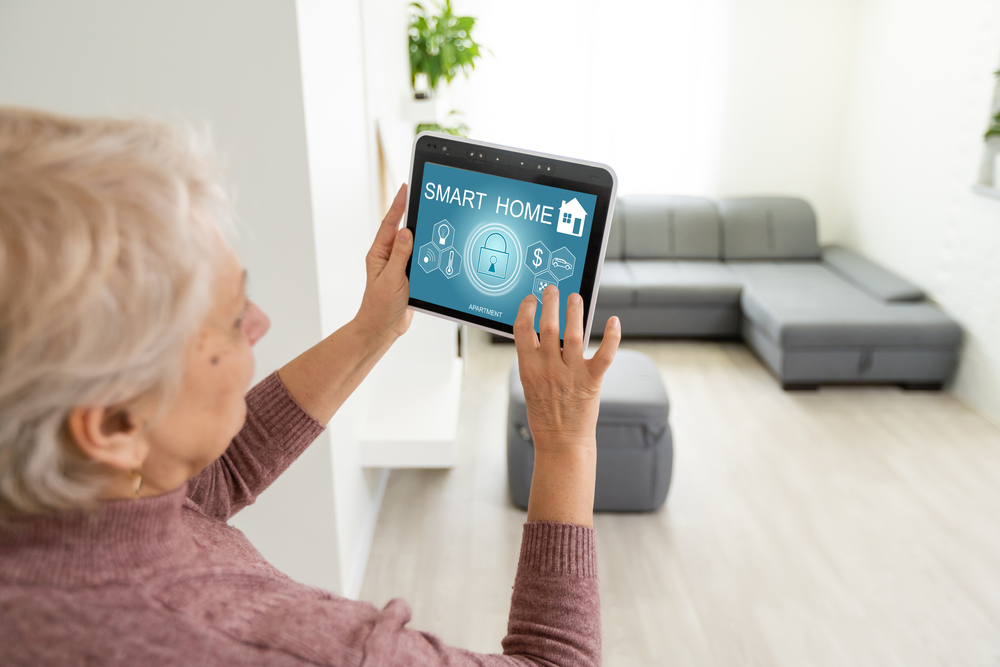Adaptive Equipment: How Simple Tech Keeps Seniors Independent Longer

Independence is precious, so as you age, you may be increasingly interested in the ways you can protect your self-sufficiency. Occupational therapy—and the adaptive equipment therapists can teach you to use—is an effective method to make everyday tasks easier and allow aging adults to maintain independence.
What is occupational therapy?
Occupational therapy helps people navigate their lives and environments more safely and completely. Unlike physical therapy, which is generally intended to promote movement for a wide range of reasons, occupational therapy tends to be focused on accomplishing specific tasks or activities of daily living (occupations).
This type of therapy is somewhat unique in that it adapts the environment to meet a person’s individual needs. In other words, occupational therapists know there are many ways to reach a goal, and they’re quite adept at finding which path is best for a person’s unique circumstances and abilities, even if it requires some creative thinking and problem-solving.
Occupational therapy can be used in many different circumstances, such as recovering from an illness or surgery, overcoming a disability, or adjusting to limits in mobility over time. It can also be beneficial in preventing injuries such as falls and promoting a better quality of life.
Therapy may involve any number of exercises to help a person regain, maintain, or develop the skills they need for independent living. While many aspects of occupational therapy are physical, it can also be useful for other purposes, such as introducing memory triggers for older adults experiencing cognitive decline.
Another element of occupational therapy is the use of adaptive devices. These tools are essentially gadgets for seniors who want to remain independent. Occupational therapists are familiar with the diverse options for adaptive equipment, they can either order it directly or help you access it, and they are generally able to teach you how to use it within your home.
What are some examples of adaptive equipment?
Adaptive equipment spans a vast number of categories, encompassing everything from a simple shoehorn that makes it less taxing to slip a shoe over the heel to highly sophisticated motorized wheelchairs.
Technology is playing an increasing role in adaptive equipment, as you can see with these examples that all help promote your independence within your home:
Personal safety alarms: These devices are typically worn on a lanyard around your neck or on a clip. If you fall or need help for some other reason, you can simply push a button to summon assistance. Some devices even include a fall detector so you don’t have to take any action at all to get help on the way.
Smart homes: Smart devices allow you to voice control everything from the lighting to your thermostat. You can even see who rang the doorbell and unlock the door for a guest without leaving your seat.
Trackers: If you’re forever losing things like your TV remote or car keys, a Bluetooth tracker may help. You simply attach a device to the item you want to track, and if it gets lost, you can refer to the app on your smartphone or tablet to help locate it.
Audible clocks: Particularly if you have trouble seeing a standard clock, an audible clock will let you hear, rather than read, what time it is. Many of these clocks also include features like custom alarms that come in handy for reminding you when it’s time for medications.
Motion detectors: Moving through your home with arms full or with hands on a cane or walker makes it difficult to turn on lights when you enter a room. A motion detector can sense your presence and illuminate the space, making it safer and more comfortable.
How can I find an occupational therapist?
If you think you or a loved one could benefit from occupational therapy and adaptive equipment, your primary care doctor is a good starting point, since they can refer you to a local therapist.
Or, if you’re a resident of a retirement community, you might find a therapist even closer to home. Residents of our Springpoint communities (and Springpoint Choice members) have access to occupational therapists who can recommend exercises and adaptive technology to help them remain independent. Contact us to learn more about the living options at our vibrant Life Plan Communities in New Jersey and Delaware.



